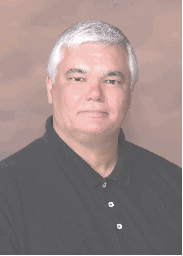|
by Daniel Gardner
In "Decision Points," George W. Bush has laid out interesting perspectives, observations, and behind-the-scenes information putting his two terms as President in a new light. Reading it, I've been impressed with how he handled his critics.
In his inaugural address January 20, 2001, Mr. Bush pledged, "Our unity, our union, is the serious work of leaders and citizens in every generation. And this is my solemn pledge: I will work to build a single nation of justice and opportunity."
After a luncheon in the Capitol, Mr. and Mrs. Bush rode in the inaugural parade to the White House. Along the way pockets of extreme left-wing progressives fiercely attacked the entourage. Bush writes, "They carried big signs with foul language, hurled eggs at the motorcade, and screamed at the top of their lungs…. While I couldn't make out their words, their middle fingers spoke loudly…."
Mr. Bush had his work cut out for him in his efforts "to build a single nation of justice and opportunity."
Those who attacked Mr. Bush from the very beginning of his presidency are markedly different from Mr. Obama's critics. But, Mr. Bush chose to rise above the clatter of such extremists and governed according to principles he had learned from his family and a lifetime of experience in the private business world.
Bush writes, "They mocked my appearance, my accent, and my religious beliefs. I was labeled a Nazi, a war criminal, and Satan Himself…. One lawmaker called me both a loser and a liar. He became majority leader of the U.S. Senate."
Bush's response to such extremists was magnanimous: "The shrill debate never affected my decisions. I read a lot of history, and I was struck by how many presidents had endured harsh criticism. The measure of their character, and often their success, was how they responded. Those who based decisions on principle, not some snapshot of public opinion, were often vindicated over time."
George W. Bush is a man of character who has lived a full life based on principles he learned from both good and bad decisions. He's taken full responsibility for his decisions, not shifting blame to predecessors or critics. And, he's chosen not to criticize his successor, even though his successor continues to campaign against him.
Early in the book, Mr. Bush shares with readers the important role faith has played in his life and views. He's exceptionally candid writing, "The notion of a living God was a big leap, especially for someone with a logical mind like mine. Surrendering yourself to an Almighty is a challenge to the ego. But I came to realize that struggles and doubts are natural parts of faith. If you haven't doubted, you probably haven't thought very hard about what you believe."
Mr. Bush's two terms were filled with epic and historical events that have changed America forever, and George W. will forever be judged by his decisions and responses to those events and not by wildly extremist allegations from progressive critics and pundits.
.
|
|

